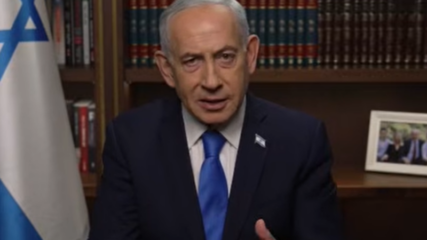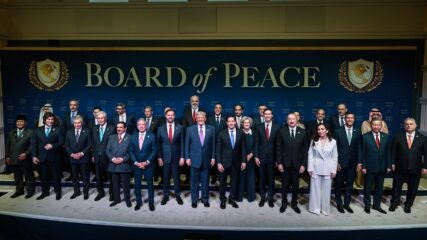June 1, 1967
Israeli Prime Minister Levi Eshkol, also the country’s defense minister, appoints Moshe Dayan as defense minister four days before the Six-Day War starts. The appointment is prompted by growing tension and fears in Israel as the tensions with Egypt escalate.
The move is part of the formation of Israel’s first national unity government. Alignment (the party created by Eshkol when he merged Mapai and Ahdut Ha’Avoda in 1965) leadership begins discussing the idea of an expanded government with members of the opposition in late May at the suggestion of the National Religious Party. Eshkol and other Alignment leaders vehemently oppose a motion by many in the opposition parties to restore David Ben-Gurion, still a member of Knesset, to a prominent security position.
On May 27, Eshkol invited Dayan, Golda Meir, Yosef Sapir and Menachem Begin to join the Cabinet as ministers without portfolio. Begin and Sapir are among the leaders of the opposition Gahal (a Hebrew acronym for Bloc of Herut and Liberals), a merger of Herut and the Liberal Party. Dayan, a protégé of Ben-Gurion’s, had left Mapai with Ben-Gurion after the 1965 creation of the Alignment and formed the Rafi party (Hebrew acronym for Party of Israel’s Workers) for the Sixth Knesset election.
Dayan is valued for both his military experience, including serving as IDF chief of staff during the victory over Egypt in 1956, and for his ties to Ben-Gurion, whom many Israelis are eager to see return to an active role in the country’s leadership. Dayan initially turned down Eshkol’s offer as being an “ineffective appointment” and pushed for the prime minister to consider him for a more significant role in security. On May 29, Gahal and Rafi, together with the National Religious Party, proposed the appointment of Dayan as defense minister. After three days of debate, Eshkol agrees to give up the defense portfolio and appoint Dayan after Yigal Allon withdraws his name from consideration.
Four days after his appointment, Dayan launches a preemptive attack on Egypt and Syria, beginning the Six-Day War. Under Dayan’s leadership, Israel captures the Sinai Peninsula and Gaza from Egypt, the West Bank from Jordan, and the Golan Heights from Syria.
Dayan’s popularity increases greatly after the war, and in 1968 he merges Rafi into the Alignment. In 1969, when Eshkol dies and Golda Meir becomes prime minister, Dayan continues to serve as defense minister. Much of the blame for the disastrous start of the Yom Kippur War is placed on Dayan (famously, Dayan went to Meir, ready to announce the “downfall of the Third Temple”) for not launching a pre-emptive strike on Egypt or Syria and for ineffectively handling the initial response to the surprise attack. His name is officially cleared by the Agranat Commission report, but his reputation is diminished. Yitzhak Rabin does not include him in the government after Golda Meir resigns.
In 1977, Dayan is made foreign minister under Menachem Begin and plays an instrumental role in the Camp David Accords negotiations of 1978. Dayan dies in 1981 from a heart attack at age 66.










